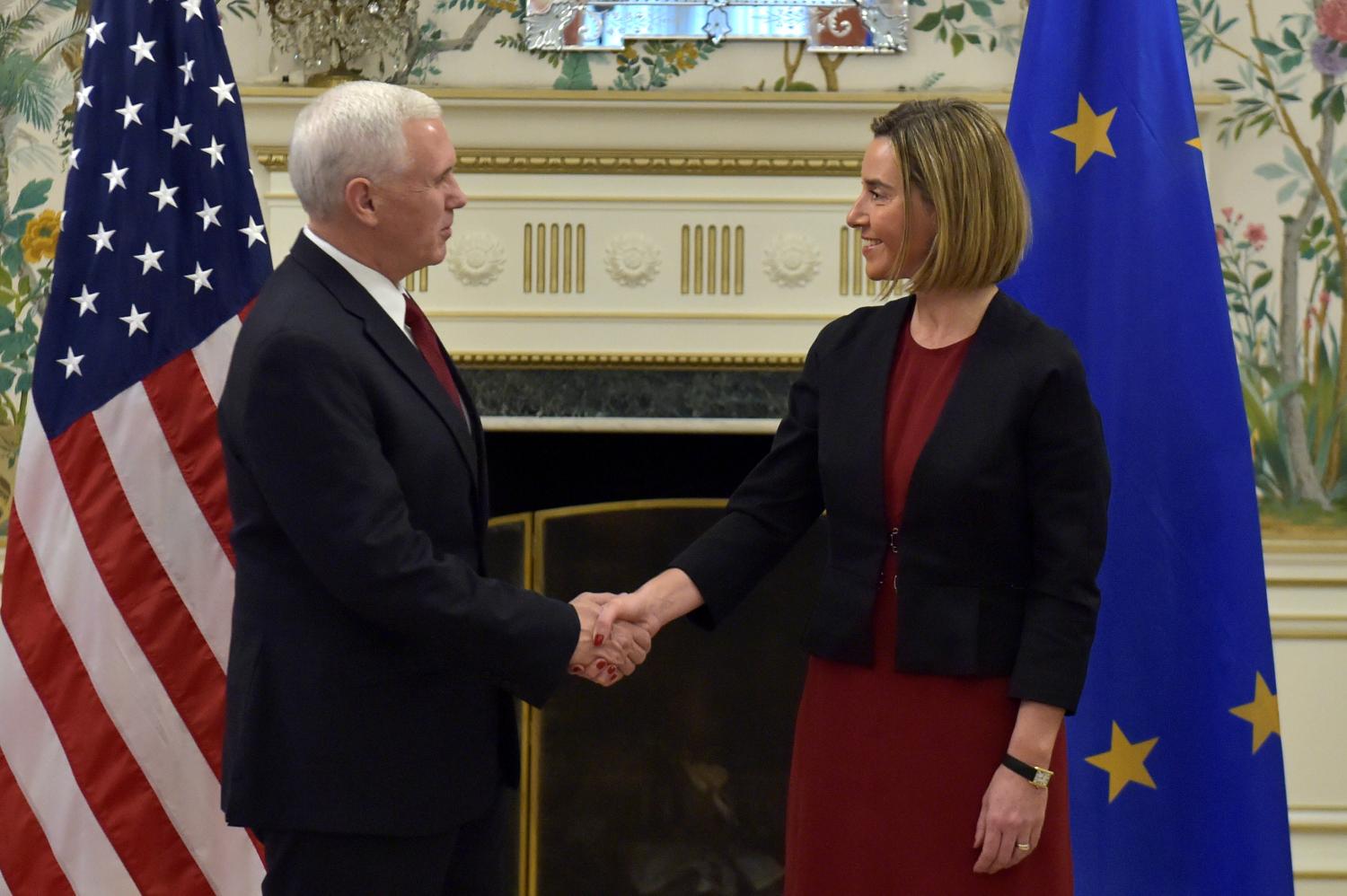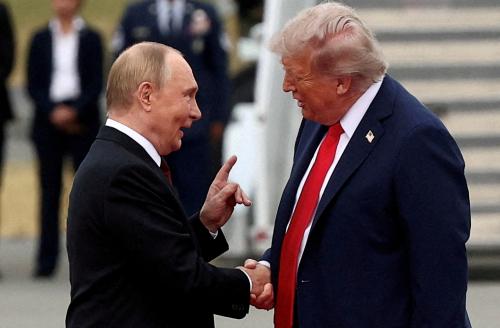Editor’s note: Brookings Senior Fellow Vanda Felbab-Brown is currently on the ground in Afghanistan and sent over a dispatch on what she’s seeing.
President Barack Obama is about to make crucial decisions about the number of U.S. soldiers in Afghanistan in 2016 and possibly after. His decision will be a vital signal to other U.S. allies in Afghanistan and its neighbors. Recent events in Afghanistan, particularly the Taliban’s capture of Kunduz, show how too large a reduction in US military and economic support can hollow out the state-building effort and strengthen the Taliban and many other terrorist groups operating in Afghanistan, including those labeling themselves daesh. In such a case, collapse of the government and indeed a collapse of the entire political order the United States has sought to build since 2001 are high. Maintaining support at something close to the current level of effort does not guarantee military or political success or that peace negotiations with the Taliban will eventually produce any satisfactory peace. But it buys us time. On the cusp of a dire situation, Afghan politicians equally need to put aside their self-interested hoarding, plotting, and back-stabbing, which are once again running high, and being put ahead of the national interest.
The Taliban’s recent victory in Kunduz is both highly impactful and different from the previous military efforts and victories of the Taliban over the past several years. For the first time since 2001, the Taliban managed to conquer an entire province and for several days hold its capital. The psychological effect in Afghanistan has been tremendous. For a few days, it looked like the entire provinces of Badakshan, Takhar, and Baghlan would also fall. Many Afghans in those provinces started getting ready to leave or began moving south. If all these northern provinces fell, the chances were high, with whispers and blatant loud talk of political coups intensifying for a number of days, that the Afghan government might fall, and perhaps the entire political system collapse., In short, the dangerous and deleterious political and psychological effects are far bigger than those from the Taliban’s push in Musa Qala this year or last year. Particularly detrimental and disheartening was the fact that many Afghan National Army (ANA) and Afghan National Police (ANP) units, led by weak or corrupt commanders, did not fight, and threw down their arms and ran away. Conversely, the boost of morale to the Taliban and the strengthening of its new leader Mullah Akbar Mansour were great. However, the Taliban also discredited itself with its brutality in Kunduz City.
The Taliban operation to take Kuduz was very well-planned and put together over a period of months, perhaps years. Foreign fighters from Central Asia, China, and Pakistan featured prominently among the mix of some 1,000 fighters, adding much heft to local militias that the Taliban mobilized against the militias of the dominant powerbrokers and the United States, as well as the government-sponsored Afghan Local Police. The support of Pakistan’s Inter-services Intelligence for the Taliban, which the country has not been able to sever despite a decade of pressure from the United States and more recent engagement from China, significantly augmented the Taliban’s capacities.
Kunduz is vital strategic province, with major access roads to various other parts of Afghanistan’s north. Those who control the roads—still now the Taliban—also get major revenue from taxing travelers, which is significant along these opium-smuggling routes. It will take time for the Afghan forces to reduce Taliban control and influence along the roads, and large rural areas will be left in the hands of the Taliban for a while. Both in the rural areas and in Kunduz City itself, the Taliban is anchored among local population groups alienated by years of pernicious exclusionary and rapacious politics, which has only intensified since March of this year. Equally, however, many of the local population groups hate the Taliban, have engaged in revenge killings and abuses this week, and are spoiling for more revenge.
Despite the intense drama of the past week, however, Afghanistan has not fallen off the cliff. Takhar and Baghlan have not fallen, nor has all of Badakhshan. The political atmosphere in Kabul is still poisonous, but the various anti-government plots and scheming are dissipating in their intensity and immediacy. On Wednesday, Afghan President Ashraf Ghani reached out to some of those dissatisfied powerbrokers, who have been salivating for a change in political dispensation. The crisis is not over, neither on the battlefield in Kunduz and many other parts of Afghanistan, nor in the Afghan political system. But it is much easier to exhale on Thursday, October 8th.
United States air support was essential in retaking Kunduz and avoiding more of Badakhshan falling into the hands of the Taliban, precipitating a military domino effect in the north and inflaming the political crisis. Despite the terrible and tragic mistake of the U.S. bombing of the Médecins Sans Frontières hospital, maintaining and expanding U.S. air support for the Afghan forces, and allowing for U.S. support beyond in extremis, such as in preventing a similar Taliban offensive, is vital. It is equally important to augment intelligence- assets support. Significant reductions in U.S. assistance, whether that be troops, intelligence, or air support, will greatly increase the chances that another major Taliban success—like that of Kunduz, and perhaps possibly again in Kunduz—will happen again. It would also be accompanied by intensely dangerous political instability.
Equally imperative is that Afghan politicians put aside their self-interested scheming and rally behind the country to enable the government to function, or they will push Afghanistan over the brink into paralysis, intensified insurgency, and outright civil war. In addition to restraining their political and monetary ambitions and their many powerplays in Kabul, they need to recognize that years of abusive, discriminatory, exclusionary governance; extensive corruption; and individual and ethnic patronage and nepotism were the crucial roots of the crisis in Kunduz and elsewhere. These have corroded the Afghan Army and permeate the Afghan Police and anti-Taliban militias. Beyond blaming Pakistan, Afghan politicians and powerbrokers need to take a hard look at their behavior over the recent days and over many years and realize they have much to do to clean their own house to avoid disastrous outcomes for Afghanistan. To satisfy these politicians, many from the north of the country and prominent long-term powerbrokers, President Ghani decided over the past few days to include them more in consultations and power-sharing. Many Afghan people welcome such more inclusive politics, arguing that while the very survival of the country might be at stake, grand governance and anti-corruption ambitions need to be shelved. That may be a necessary bargain, but it is a Faustian one. Not all corruption or nepotism can or will disappear. But unless outright rapacious, exclusionary, and deeply predatory governance is mitigated, the root causes of the insurgency will remain unaddressed and the state-building project will have disappeared into fiefdoms and lasting conflict. At that point, even negotiations with the Taliban will not bring peace.
The Brookings Institution is committed to quality, independence, and impact.
We are supported by a diverse array of funders. In line with our values and policies, each Brookings publication represents the sole views of its author(s).




Commentary
A dispatch from Afghanistan: What the Taliban offensive in Kunduz reveals
October 8, 2015